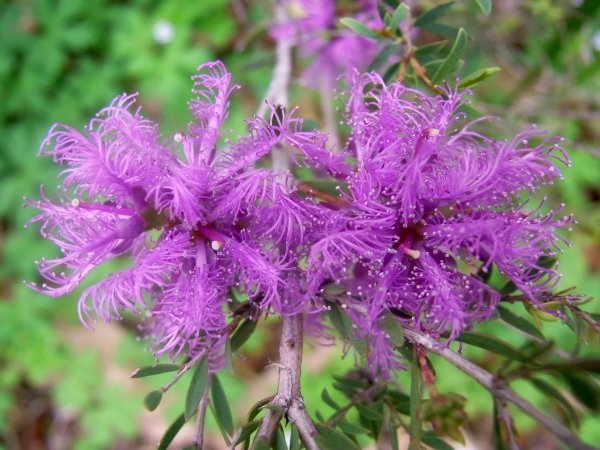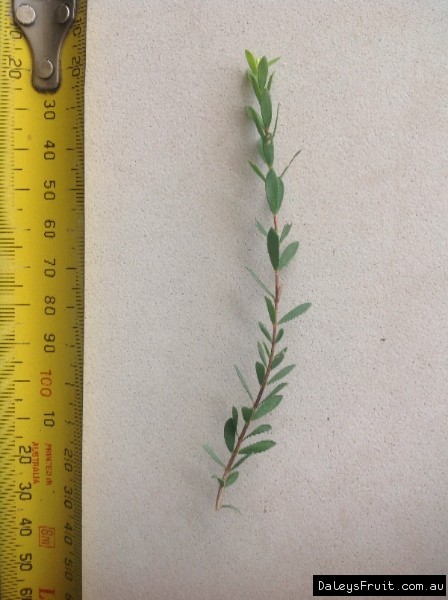Melaleuca - Cotton Candy
Melaleuca thymifolia$17.75 ($14.90-$17.75 choose a size)
Specifications of Melaleuca - Cotton Candy
Preferred Climate Subtropical, Warm TemperateLearn About Climate Zones
Grown From CuttingLearn About Propagation Methods
Max Height (when in the ground with good conditions) 0-1m
Plants required to Pollinate 1 (Self Pollinating)Learn about Pollination
Can it Handle Frosts? Yes
Amount of leaves in Winter? All Leaves (Evergreen)
Quarantine Restrictions to these Areas SA, WA
Suitability in Pots Yes with 35L+ Pot
Water Requirements Drought Hardy (Little Watering)
Is it a Dwarf Fruit Tree? Can be pruned to 2m
Time to Fruit/Flower/Harvest 2-3 Years
Sun or Shade Full (Sun:80%-100%), Part (Sun:50-80%)
Preferred Soil Type Good Drainage, Poor Drainage (Clay)
Soil pH Neutral (6.6-7.3pH)
Fruiting/Harvest Months August, September, October, November, December
Create a Filter to find similar plants


















